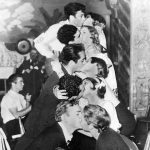In February 1946, a photograph of a father seemingly fainting after seeing his newborn triplets for the first time became a sensation.
The image captures a doctor and three nurses laughing as the father is “unconscious.” These days, it has been passed around social media with various captions and stories.
But what’s the real story behind this viral photograph? Let’s delve into the fascinating details of the Poulos family.
A Surprise in 1946: No Ultrasound, No Clue
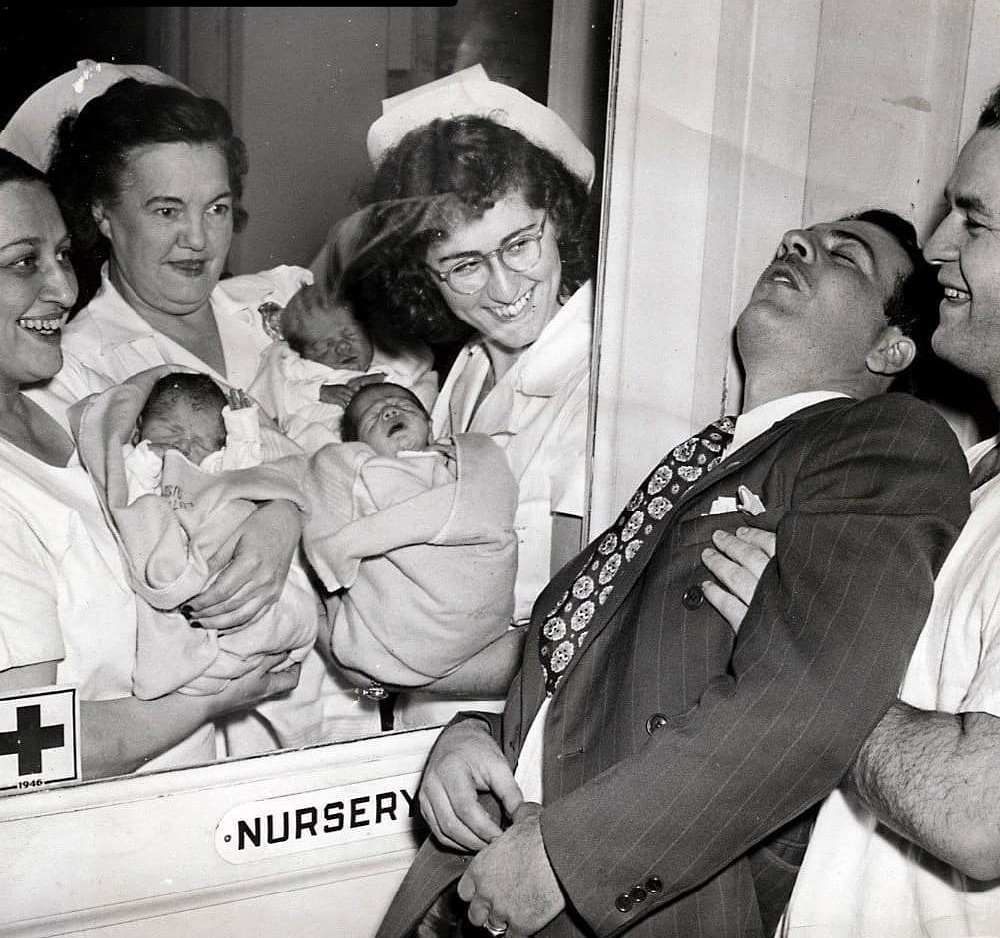
In 1946, expecting parents had no way of knowing exactly how many babies were coming until delivery day.
Obstetric ultrasound, now standard for monitoring pregnancies, wasn’t available until the late 1950s.
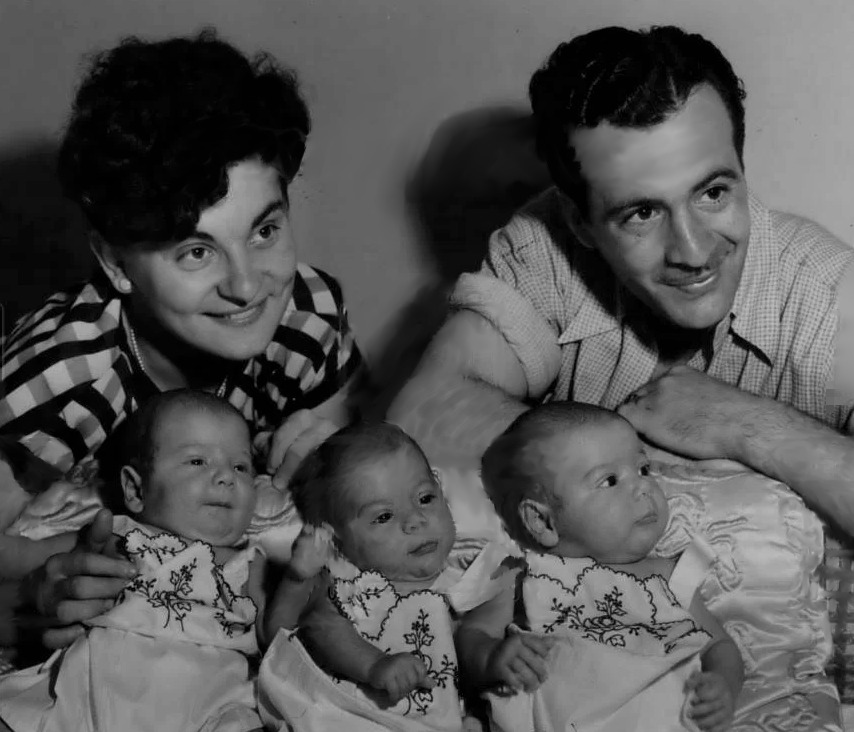
For parents like Nora and Arris Poulos, the arrival of triplets was a major shock. Doctors relied on Leopold’s Maneuver to feel the position and number of babies, but this method wasn’t always accurate.
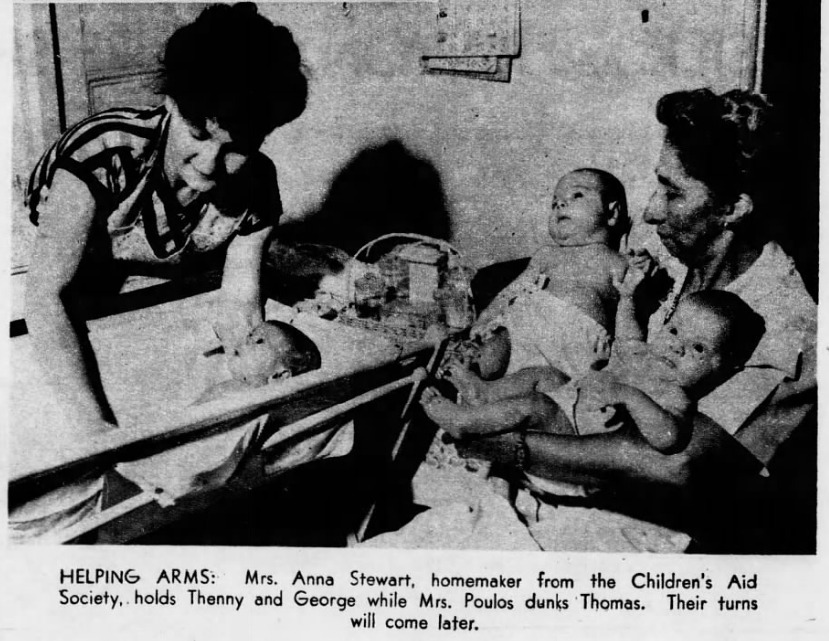
The Poulos family likely suspected Nora was carrying more than one baby due to the size of her belly.
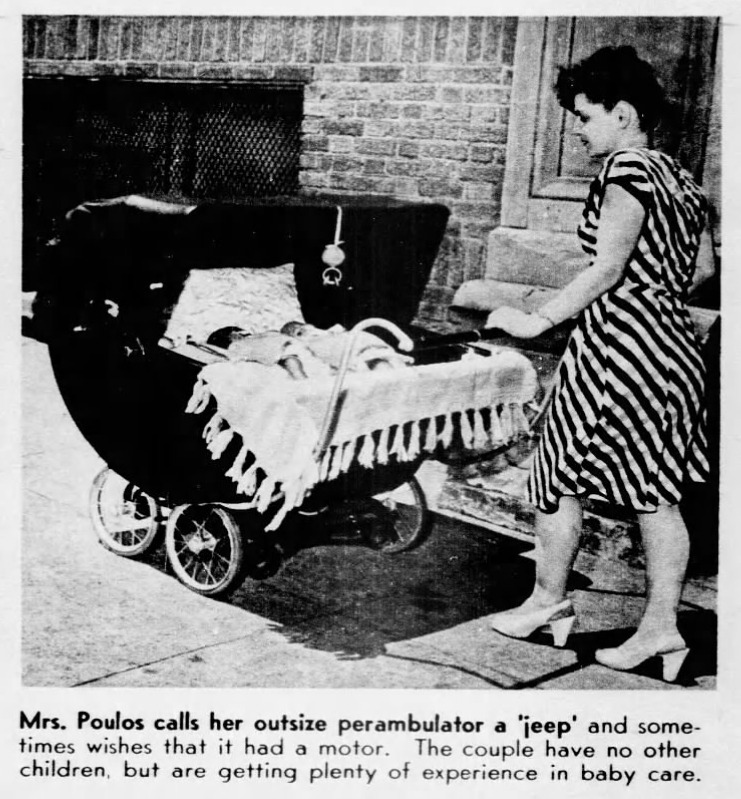
But nothing could fully prepare Arris, a 27-year-old WWII veteran, for the surprise when three boys were delivered at Lutheran Hospital in New York City.
The Iconic Photo: Staged or Real?
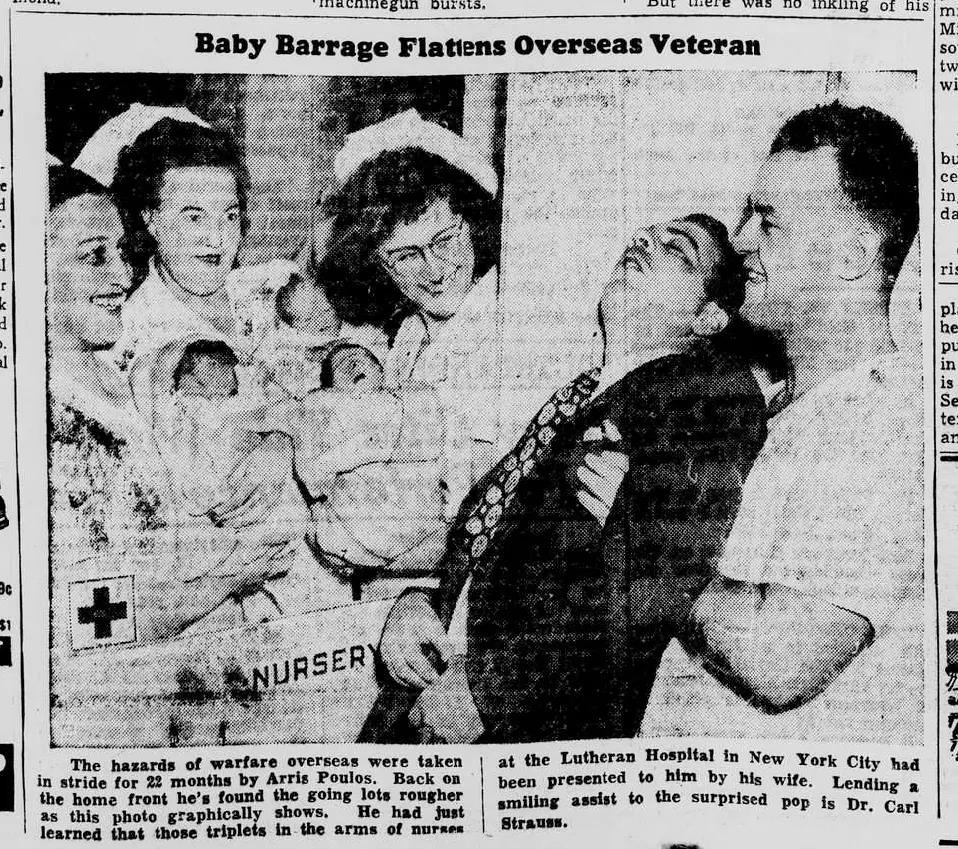
The famous photo of Arris seemingly unconscious, surrounded by nurses and doctors laughing, was shared widely in newspapers.
Headlines like “Proud Papa Sees Triplets for First Time” accompanied the image, suggesting that the father fainted at the sight of his three sons.
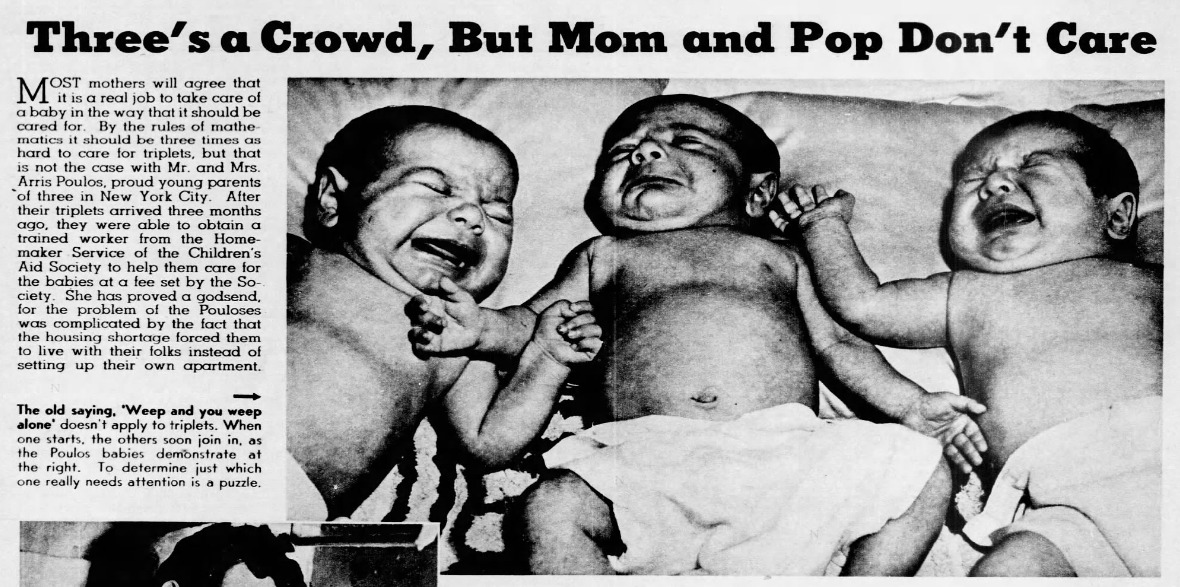
However, the original Associated Press caption described his reaction as “feigned shock,” indicating that the scene may have been staged.
It wasn’t uncommon for such photos to be exaggerated for the media.
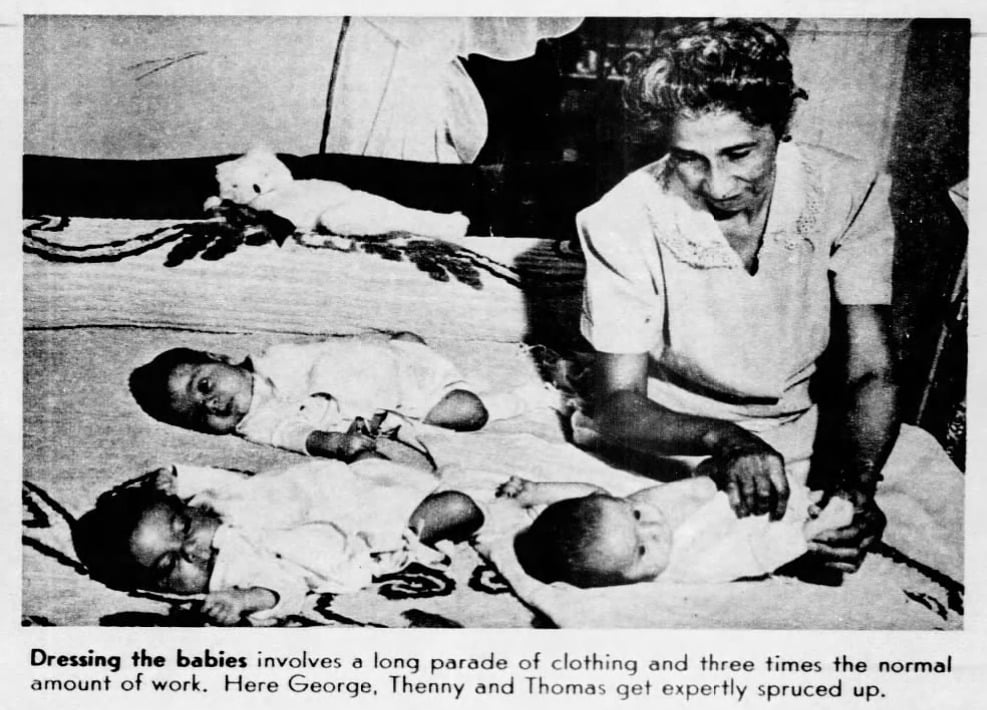
Editors knew that a humorous or surprising image would attract attention, especially in the post-war era, when uplifting stories were in high demand.
Whether Arris genuinely fainted or played along for the camera, the image captured a father’s joyful—and slightly overwhelmed—reaction to the arrival of his triplets.
The Arrival of Tommy, Thenny, and George
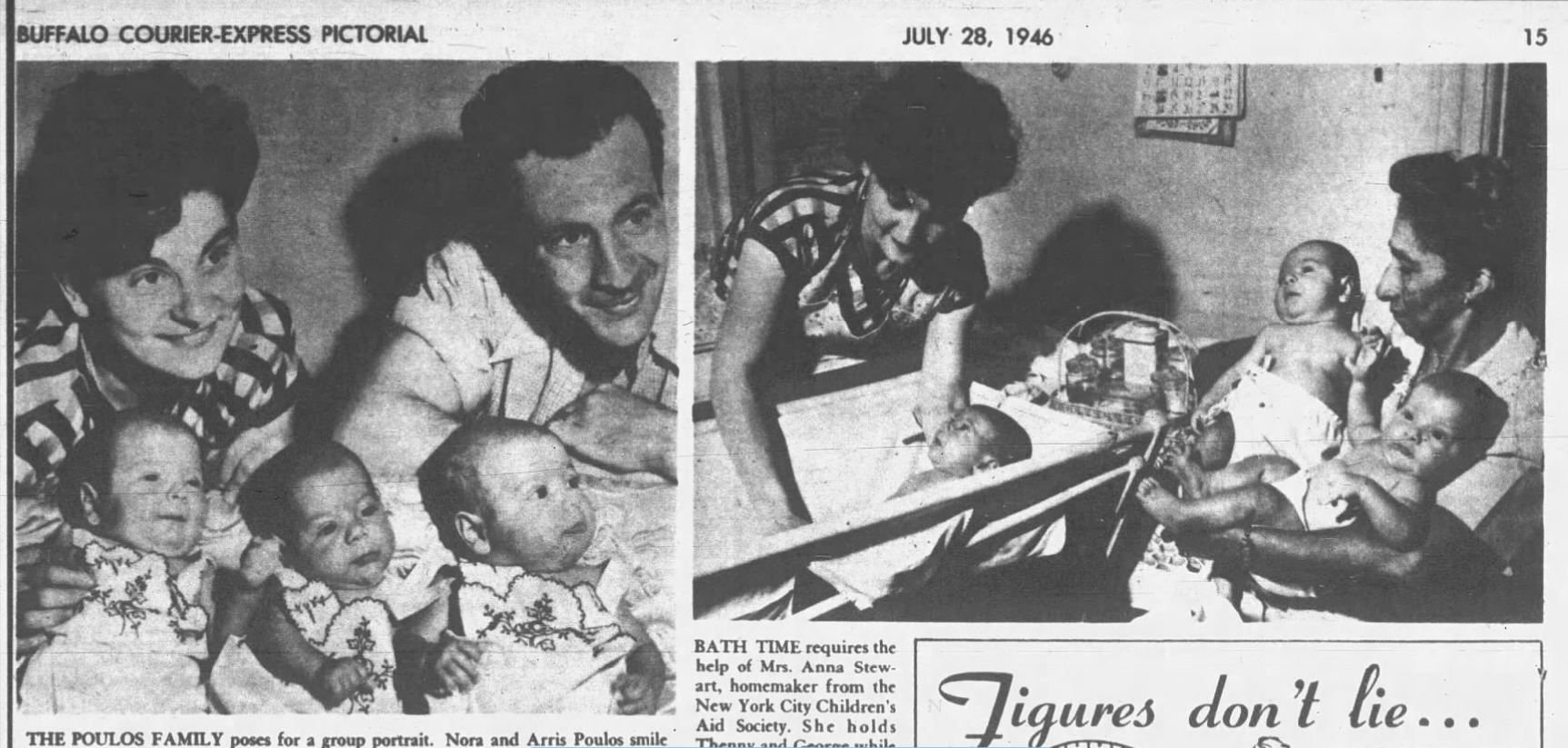
On April 22, 1946, Nora gave birth to her three sons, Tommy, Thenny, and George.
The post-war housing crisis forced the Poulos family to move in with relatives as they adjusted to life with three newborns.
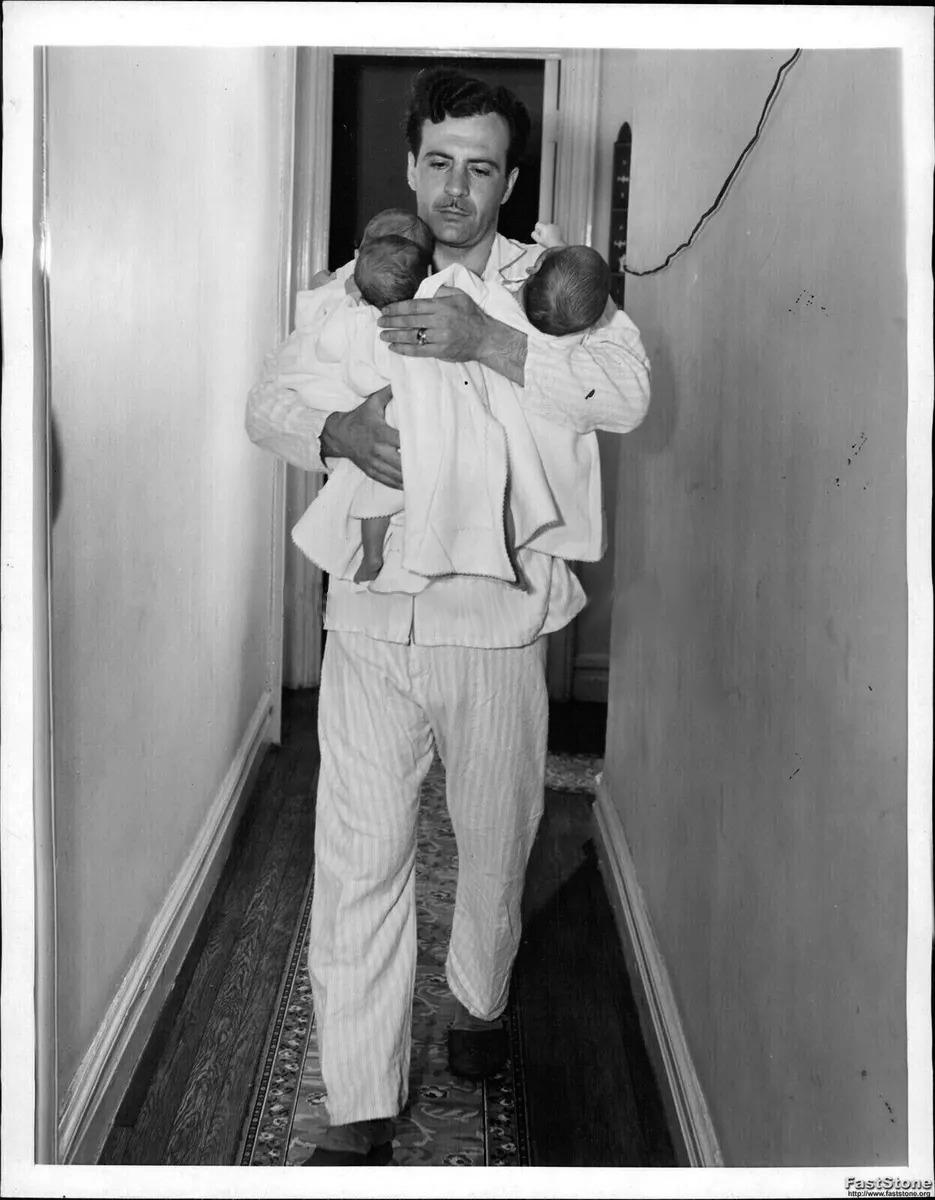
Arris stepped up as an active father. He was frequently seen scrubbing bottles and pacing with all three babies in his arms.
The Poulos triplets became local celebrities, with their birthdays covered in the media.
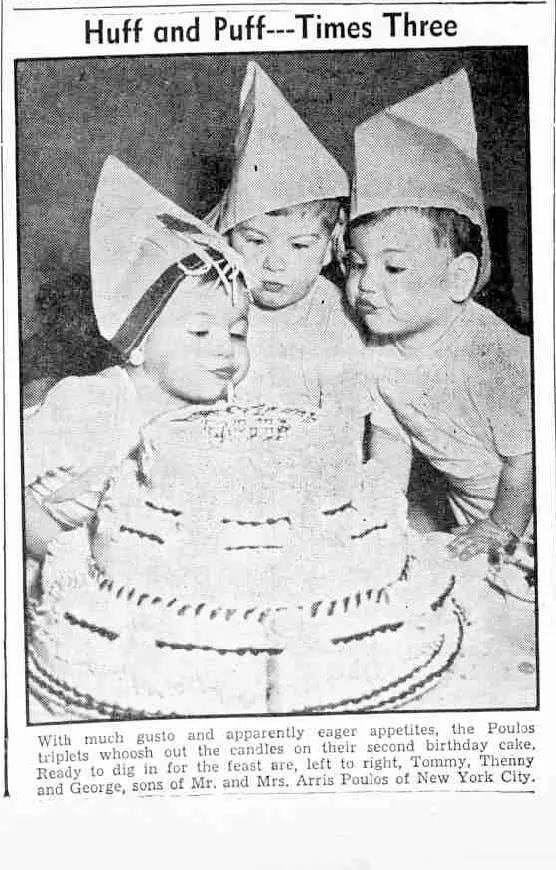
The New York Times even covered their fifth birthday, describing the event as a party that “seemed done with mirrors,” full of joy and wonder as the boys celebrated with other sets of triplets.
Life After the Headlines: The Poulos Family Legacy
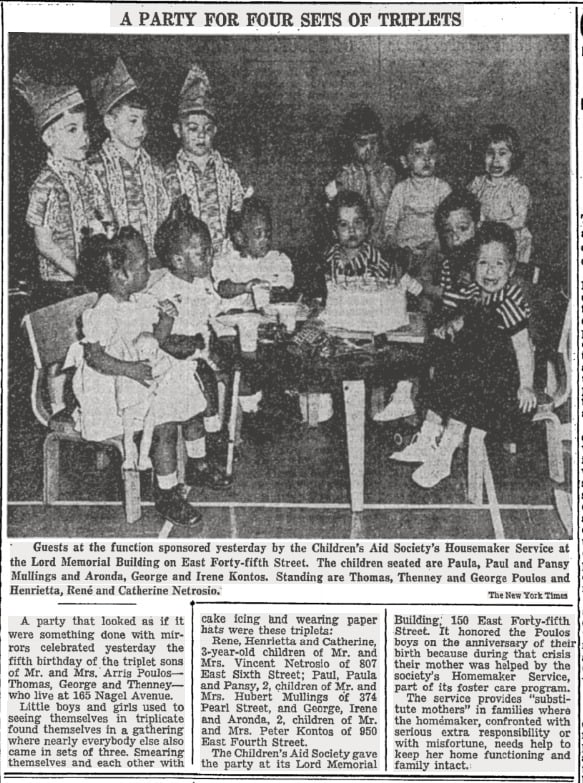
Arris and Nora continued to raise their growing family in New York. They welcomed a daughter, Hope, adding to their lively household.
Arris, who had fought the Nazis in Greece during WWII, carried his sense of duty into fatherhood.
As the boys grew older, they each found their own paths. Thomas, the eldest triplet, became a successful businessman, building a mobile catering empire that supported his family for generations.
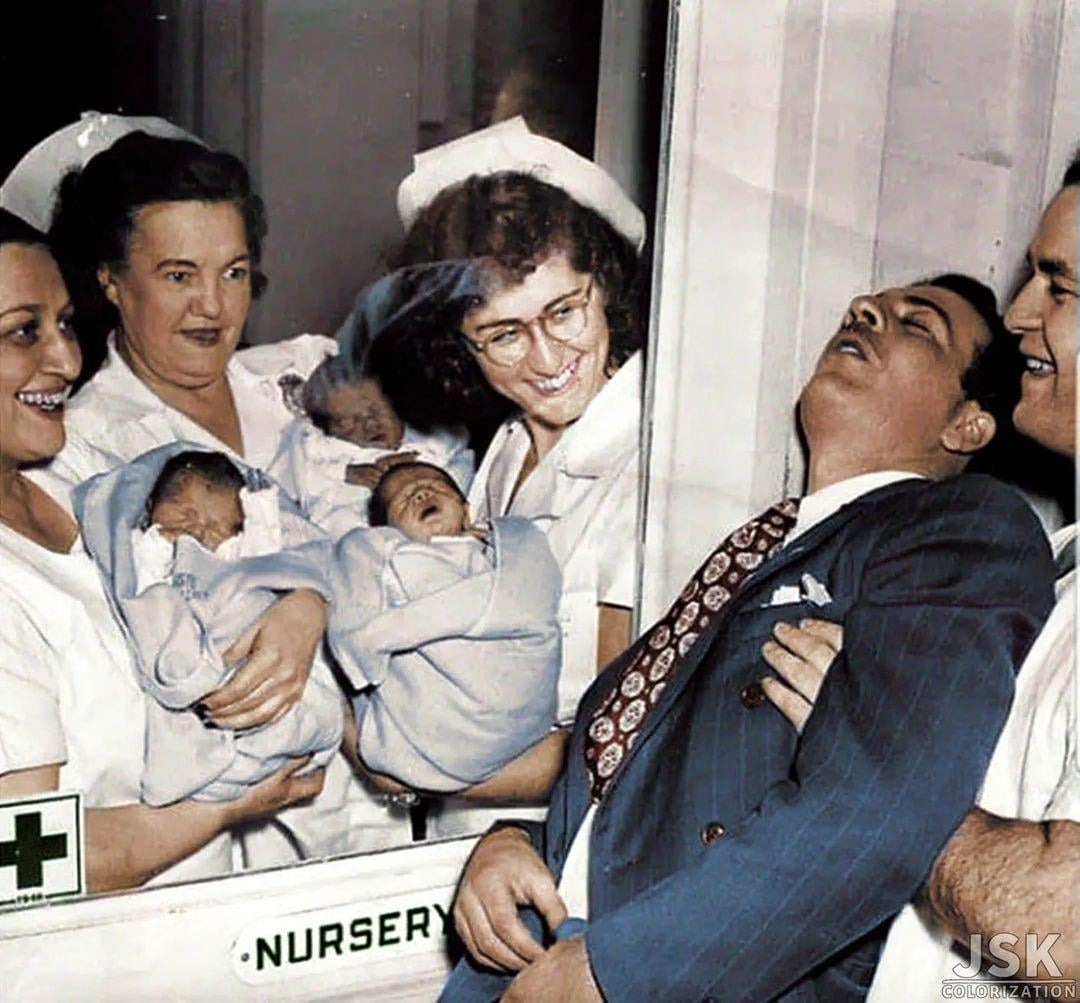
George served in the Navy during the 1960s and later became an advocate for multiple sclerosis awareness after his diagnosis.
Unlike his brothers, Thenny chose to lead a more private and quiet life away from the spotlight. When Arris passed away in 1994, he was honored with a burial at Santa Fe National Cemetery.
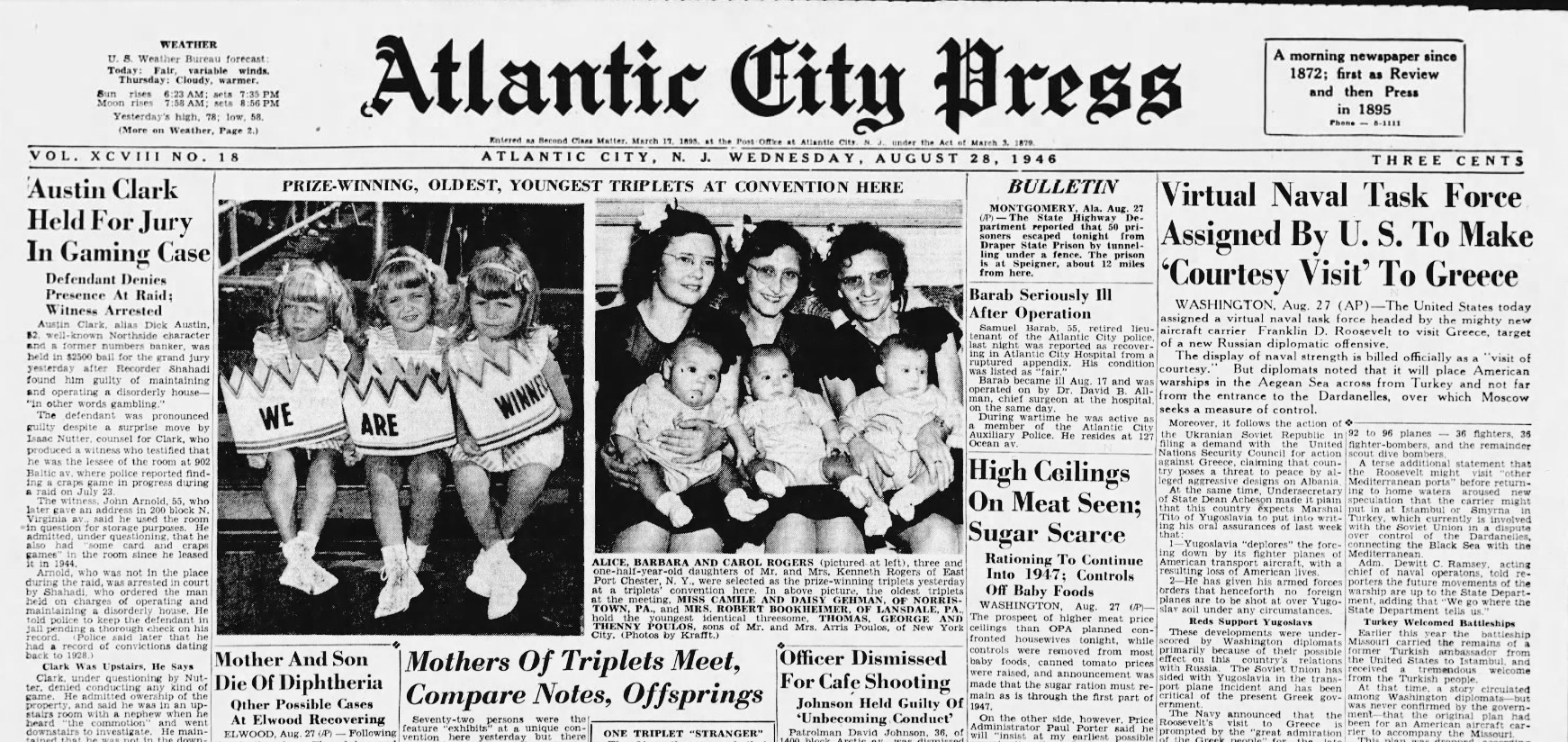
Nora lived a long and fulfilling life and stayed close to her family. By the time she passed away on February 19, 2017, she had ten grandchildren, as well as great and even great-great-grandchildren.
Nora was laid to rest at Santa Fe National Cemetery, likely next to her husband, Arris.


